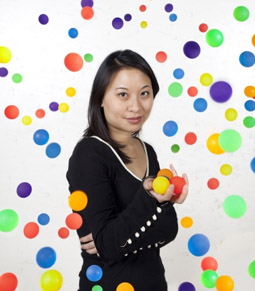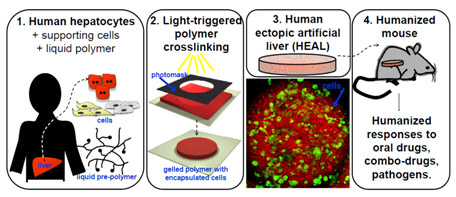Recommended

Alice A. Chen, a biomedical engineer and graduate student in the Harvard-MIT Division of Health Sciences & Technology and the Harvard School of Engineering and Applied Sciences, took home the $30K prize for applying micro- and nano-technology tools to create an assortment of innovations to aid drug development and disease modeling.
Chen's most recent innovation is humanizing a mouse with a tissue-engineered human liver to bridge the gap between unpredictable animal testing and human clinical trials. She also co-developed two other inventions: a platform to rapidly analyze engineered tissues under development for therapeutics and discovery and a method to increase the predictability and accuracy of small interfering RNA (siRNA) as a research tool.
Humanizing Mice Pre-clinical animal testing is an important part of the drug-development process to help determine which drugs are safe for human clinical trials, but given the differences between human and animal liver activity, human toxicities are often under-reported. Chen engineered an artificial human liver in vitro by combining human liver cells, supporting cells, and a liquid solution that solidifies when triggered by light (see image below). The resulting engineered human liver, patterned with light to resemble a soft contact lens, is then implanted into the abdomen of a mouse.
Chen’s humanized mice can be customized by donor or mouse background, allowing drugs to be tested on a large population of various “patients.” In addition to reducing the cost of humanizing mice by nearly 100-fold, Chen’s tissue-engineering approach also reduces the time for humanization from one month to one week, making it more suitable for large scale pharmaceutical adoption and broad research.
A co-applicant of five patents, Chen also joined with fellow MIT grad student Todd Harris PhD '08 to cofound Sienna Labs, a biotechnology company that has developed a breakthrough class of new medical pigments to enhance the safety and efficacy of microsurgeries for skin disease treatments.
Learn more about Chen and her work.








